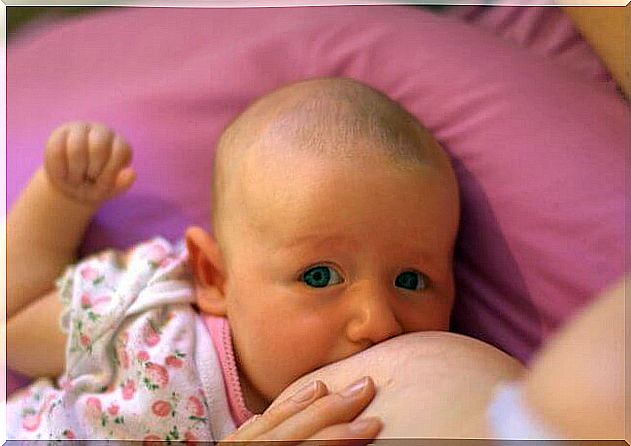Nutrients In Infant Food

It is common for parents not to know which group each food belongs to and what role it plays in the development of children. Each of the nutrients has a specific task for the growth of the little ones and when it comes to helping to prevent various types of diseases.
Main nutrients of infant feeding
Diet plays a key role in achieving optimal health and helping to prevent disease, both now and in the future. It can be a bit confusing for parents to know which foods are suitable and how they are classified. In the following list, each of the nutrients in infant food is presented in detail:
Vitamins
When talking about vitamins, it is necessary to specify, because there are many types and we may not know exactly which ones are really most necessary. Each of them has a function in the body and in growth :
- Vitamin A: fulfills an important task in the development of vision, in protecting the body thanks to its antioxidant character and in the growth of body tissues, including nails, hair and skin.
- Vitamin C: helps form and repair collagen in bones and tissues. In addition, it assists in healing, strengthens the immune system and keeps infections under control. It is recommended to raise the defenses, according to an article published in the magazine “Nutrients”.
- Vitamin D: this is essential to help the body absorb calcium and build healthy bones. It also helps maintain a healthy immune system and regulates cell growth. Maintaining optimal levels of this vitamin is linked to the prevention of several complex diseases according to experts.
- Vitamin E: fights against the production of free radicals, which can cause cell damage.

Protein
Proteins are essential for growth and to lead an optimal life. These contribute to the proper metabolic functioning and the formation of antibodies that are responsible for protecting the body from infections.
Proteins are made up of amino acids, of which eight are essential for the body. What is recommended is that 65% of protein consumption is of animal origin and the rest of vegetable origin, but in many cases it will depend on the advice of the doctor. These can be found in the following foods:
- Proteins of animal origin: found in meat, poultry, eggs, mollusks and shellfish.
- Proteins of vegetable origin: can be found in legumes and nuts.
Minerals
Minerals are also very important supplements that the body requires. Iron, calcium and iodine are essential for the growth process and can never be lacking in the diet of the little ones. Here are the benefits of each:
- Iron: this mineral is essential for the transport of oxygen through the blood. A correct intake of iron will be in accordance with the growth of the volume of blood in the body. It can be found in various foods such as legumes and red meat.
- Calcium: It is necessary for the formation of the skeleton. Therefore, it is essential that children consume foods rich in this mineral. It can be found in milk, dairy products, and vegetables, like spinach.
- Iodine: this mineral is also very important for the growth of children. In addition, it regulates functions such as heart rate or body temperature. It is present in foods such as fish and asparagus.

Carbohydrates
Carbohydrates or carbohydrates are a fundamental source of energy for the body of children. It is important to note that not all of them are good, they are divided into two types and parents should be informed of the characteristics of each one. Here we present them in detail:
- Simple carbohydrates: they have a more fleeting impact on the child’s body, produce a spike in blood sugar and high pancreatic stress. Foods such as processed products and sweets contain this type of component.
- Complex carbohydrates: they are characterized by having a slow absorption in the body; therefore, they will not pass as quickly into the blood, so they provide a greater feeling of satiety and facilitate digestion. They are present in foods such as wheat or corn flour.
Variety in the diet is essential!
It is important for parents to be informed about which are the main nutrients in infant food and to integrate each of them into the children’s diet. This will allow them to develop properly; On the other hand, the deficiency of these nutrients in your body can cause you various health problems.
For this, a balanced and varied diet is recommended, rich in fresh products and poor in processed or industrial foods. It is also beneficial to combine this dietary pattern with the practice of physical exercise on a regular basis.










